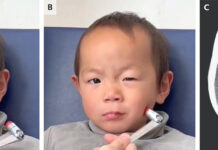Case Presentation: History and Examination
A 55-year-old woman from Thailand, with a known medical history of hypertension, presented 2 weeks after getting the second dose of AstraZeneca vaccine, with the complaint of conscious perception of an increased heart rate. She did not give any history of fever, shortness of breath, chest pain or weight loss. On inquiring, her medical history was significant for hypercholesterolemia, however, there was no presence of thyroid disease. The doctors during examination found that her heart rate was 120 beats per minute. There were no other significant findings during the complete patient examination.
Investigations
The doctors ordered an ECG and Chest X-ray. The ECG showed sinus tachycardia, although, there was no alteration in the ST–T segment. The Chest X-ray was unremarkable. كيف تلعب روليت Moreover, the doctors sent certain serum markers as well. The tests revealed a normal cardiac troponin I, elevated serum free triiodothyronine, normal serum free thyroxine, decreased serum thyroid stimulating hormone (TSH), and normal CRP and ESR. Additionally, thyroid peroxidase, thyroglobulin, and TSH receptor antibodies were negative.
Moreover, doctors also sent Polymerase chain reaction (PCR) tests for respiratory viruses including COVID-19, which turned out to be negative. Due to the deranged thyroid hormone levels, doctors performed a thyroid ultrasound which revealed a normal thyroid gland size without increased Doppler flow. However, Iodine-131 uptake study demonstrated less thyroid uptake which is highly consistent with the diagnosis of thyroiditis. To rule out any cardiac disease, the doctors ordered transthoracic echocardiography (TTE) which was non-significant. They also ordered cardiac magnetic resonance imaging (CMR) which showed findings highly suggestive of recent myocarditis based on the Lake Louise criteria. Doctors decided not to perform an endomyocardial biopsy owing to the less severe intensity of the symptoms.
Treatment
Due to the simultaneous diagnosis of painless thyroiditis and myocarditis, the doctors began a treatment regimen with 3 weeks of treatment with low-dose beta blocker, namely Propranolol 30 mg per day. They also advised her not to exercise during this time duration. After 3 weeks of treatment, doctors repeated her blood tests, which were within the normal range.
Prospect
After the Covid-19 pandemic, many vaccines have been developed in order to prevent the spread of coronavirus. One of these vaccines is called AstraZeneca vaccine. Despite the overt advantages of these vaccines, there are numerous side effects that come with it. The commonly witnessed adverse effects are thrombosis and thrombocytopenia. However, very few cases of thyroiditis and myocarditis following vaccination with AstraZeneca vaccine have been seen. Moreover, a simultaneous manifestation of these diseases is very rare.
Myocarditis and Thyroiditis
Although myocarditis and pericarditis are well-known side effects of certain Covid-19 vaccines, they are not well-known adverse reactions of the AstraZeneca Covid vaccine.
Myocarditis refers to inflammation of the heart muscle (myocardium). This inflammation can also cause a hindrance in the pumping ability of the heart. bet365 arabic The other causes of myocarditis, besides vaccine-induced myocarditis are virus, streptococcus, mycoplasma, fungal and parasitic infection, alcohol, drugs, lead, spider bites, snake bites and chemotherapy.
Thyroiditis refers to the inflammation of the thyroid gland. The types include Hashimoto’s thyroiditis, painless thyroiditis, postpartum thyroiditis, radiation-induced thyroiditis, drug-induced and Ridel’s thyroiditis. Symptoms of thyrotoxicosis can include high-grade fever, tachycardia, irritability, anxiety, sweating, tremors, difficulty sleeping and delirium. It is usually diagnosed through thyroid function tests, thyroid ultrasound and thyroid antibody tests. However, thyrotoxicosis is managed with beta-blockers whereas hypothyroidism with levothyroxine.
Vaccination-induced myocarditis and thyroiditis
Vaccine-induced myocarditis usually presents with mild symptoms that don’t need any serious intervention and resolve on their own. A very severe form of the disease presents with cardiogenic shock, and there’s a need for intervention in order to prevent mortality. Chest pain is the most common symptom, along with shortness of breath and arrhythmias. This case reported palpitations which have not been reported previously and this symptom could be due to thyroiditis and myocarditis. bet365 sports The investigations that are usually performed by doctors for the evaluation of myocarditis are cardiac magnetic resonance imaging (CMR), ECG, cardiac markers, and TTE due to non-invasive nature of these investigations. The treatment of myocarditis, regardless of the aetiology are ACE inhibitors, diuretics and beta blockers.
Post-vaccination thyroiditis has been reported after all types of Covid-19 vaccines. This disease affects women, especially in the age group of 25 to 75 years. The symptoms are usually seen 4 to 21 days post-vaccination and may range from mild that resolve spontaneously to severe. The most common symptom is neck pain, along with hyperthyroid, hypothyroid and euthyroid clinical status. If the patient is hyperthyroid clinically, the differential diagnosis will be Graves disease and subacute thyroiditis. In order to find the aetiology of the disease, doctors also send thyroid antibodies and iodine-131 uptake.




